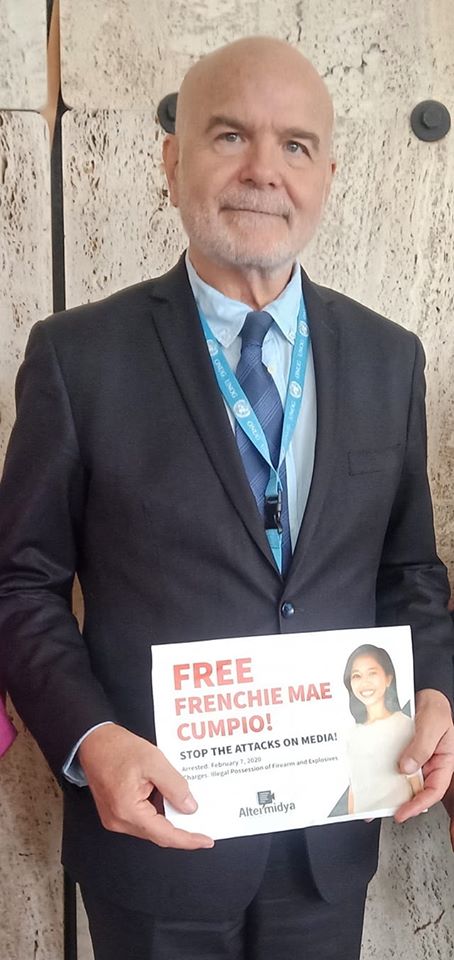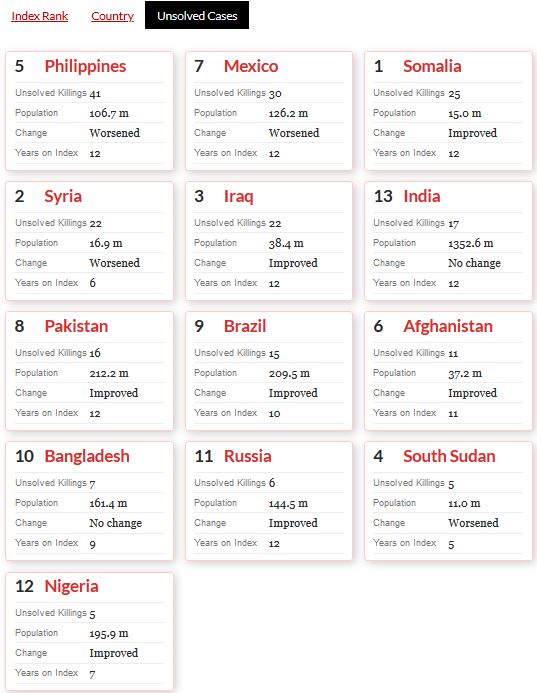Int’l and local media groups call for Tacloban journalist’s freedom amid COVID
Media organizations worldwide are calling for the release of Tacloban-based reporter Frenchie Mae Cumpio and other jailed journalists throughout Asia amid the sweeping coronavirus pandemic.
In a letter dated April 27, 74 organizations called on Philippine President Rodrigo Duterte, Cambodian Prime Minister Hun Sen, People’s Republic of China President Xi Jinping, Indian Prime Minister Narendra Modi, Myanmar State Counsellor Aung Sun Suu Kyi, Pakistan Prime Minister Imran Khan, and Vietnamese President Nguyen Phu Trong to release imprisoned journalists in response to calls from various quarters to decongest and prevent coronavirus contagion in jails.
The New York-based Committee for the Protection of Journalists (CPJ) began a campaign on March 30 called #FreeThePress, launching a petition and publishing an open letter to world leaders urging the immediate release of all journalists imprisoned for their work.
“Given that a staggering number of these imprisoned journalists are held in jails across the Asian continent, we are reiterating that call to your respective countries at this time of grave public health concern,” the letter reads.
The media and rights organizations said the release of the jailed journalists is in line with the protection of free press and the free flow of information at the current crucial times.
“For journalists jailed in countries affected by the virus, freedom is now a matter of life and death. Imprisoned journalists have no control over their surroundings, cannot choose to isolate, and are often denied necessary medical care,” it adds.
According to CPJ’s most recent annual prison census conducted last December 1, there were at least 63 journalists in prisons in Asia, including 48 in China, 12 in Vietnam, two in India, and one in Myanmar.
As of March 31, at least five journalists have been released, four in China and one in Vietnam, according to CPJ research.
However, at least five more journalists have been arrested since December 1, including Cumpio in the Philippines, Sovann Rithy in Cambodia, Chen Jiaping in China, Gautam Navlakha in India, and Mir Shakil-ur-Rahman in Pakistan.

Cumpio, reporter and executive director of the community media group Eastern Vista and a radio host at Aksyon Radyo in Palo, Leyte was arrested in a pre-dawn raid by the police at a Church-owned property on allegations of illegal possession of firearms and explosives.
Cumpio’s colleagues and supporters said the police charges are not only trumped-up but ridiculous.
The letter, sent electronically to the said heads of state, was signed by 74 media, press freedom and human rights organizations, including the National Union of Journalists of the Philippines and the Philippine Center for Investigative Journalism.
“Article 19 of the Universal Declaration of Human Rights guarantees everyone the right to freedom of opinion and expression without interference and the right to seek, receive, and impart information and ideas through any media and regardless of frontiers,” the letter notes.
It further cites the World Health Organization: “People deprived of their liberty, and those living or working in enclosed environments in their close proximity, are likely to be more vulnerable to the COVID-19 disease than the general population.” # (Raymund B. Villanueva)



